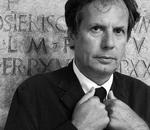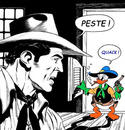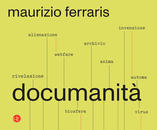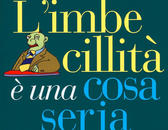Homo faber fortunae suae
"The End of Homo Faber, Between Video, Audio and Selfies" is now upon us. Or at least it appears to be the case given that this was the title of an article written by Sebastiano Maffettone in the Sunday edition of Il Sole 24 Ore newspaper. The piece was a commentary on “Documanità, filosofia del mondo nuovo” (Documanity, philosophy of the new world) the most recent and definitive work of Maurizio Ferraris, one of the most influential and certainly the most original of the contemporary philosophers. Ferraris breathes new life into modern philosophy and opens unprecedented scenarios, at least with respect to our way of viewing the world. This book tears apart many of our cherished prejudices, cultivated with arrogance, over decades regarding an increasingly decisive topic in our personal and professional lives: the world wide web. Tearing apart lifelong prejudices in a few days can be a painful, yet beautiful exercise, in no small part because living with unshakeable certainties is a blessing.
I enjoyed almost every sentence of the thick, over 400-page book, including all the juicy foot notes. The book is filled with brilliant phrases that go straight to the point and are easy to read, often with amazement and amusement, linked together by stringent and consequential logical references, despite the enormous amount of transversal and interdisciplinary references that make them up. On the other hand, the author warns us – immediately after the prologue in which he includes providential instructions for use – that the work wants to re-propose the form of the system, which has fallen into disuse over the last two centuries in favor of a fragment. "If, as I believe, from philosophy one expects totality, or at least something that resembles it, then the only alternative to the negative totality of the fragment is the system, or at least the adoption of a form, open and modular as much as one wants, but a form." A truly grandiose system that deals with the subject from all points of view: ontologically, technologically, epistemologically and, one might even say, teleologically; a system in which the various forms of knowledge intersect to form a dense network, developing an almost multimediatic composition and that seems convincing even in the most delicate or questionable points, precisely because of this programmatic depth is so well designed. (The author makes and equally concrete argument by including hand-drawn graphs at the beginning of each chapter.)
Among the various ways the author suggests reading the book, I chose the “thematics,”in fear that I wouldn’t be able to follow the development of a complex philosophical system from beginning to end. At the beginning, I selected, from a perfectly calibrated index, the chapters relating to technological knowledge, with the idea of later relating them to teleological knowledge. But, thanks to the quality of his writing, and the consequent and unexpected fluidity of reading, I truly enjoyed the book. I enjoyed it as one would if placed in front of his favorite dessert. You begin cutting down timidly on your well-calculated slice to then finish gulping in down with both satisfaction and a sense of guilt. In short, although in an intermittent and wavering way, the book was read in one seating, conveying a strange feeling of lightness and gravity (in the sense of being hard to bear). That feeling, sentence after sentence, page after page, chapter after chapter, exalted and disheartened, intelligent and half-witted. Exalted and intelligent in learning a great lesson, disheartened and half-witted in understanding how ignorance can enslave prejudices, unleashing "the superstitious and pharisaic attitude that consists in blaming all our unhappiness on an elusive neoliberalism and a despotic technique” - to quote the philosopher, who seems to refer exactly to us as if he had always known us.
In a nutshell, "Documanity" is the path of construction of an anthropology that ideally takes its start from Leopardi's "Canto notturno," that is from the observation that "the humans are the only intolerant animals and therefore he suffers in any environment as an unstable, unsuitable and dissatisfied animal, therefore in need of technology.” In this way, getting rid of what he calls "Rousseau's syndrome," that is a "human nature given forever and deformed by history, to which one must return." This progressive approach allows us to frame technology in a fully humanistic key, against prejudices and harmful prophecies, ending up proposing a form of sustainable management of technological power in the sense of human justice and well-being.
A key point of this path is the passage from the man who produces (in yesterday's world) to the man freed from the necessity of production (in the world of tomorrow), and therefore able to express his own potential far better than before, basing his existential experience on three cornerstones: consumption, framed in a completely new context; education, more centered and humanistic, "out of the reach of any computer"; and invention, that is creativity, the autopoietic ability.
The conceptual mapping of the new world is convincing right down to the minutiae (the small details in which the loving care of the craftsman can been seen.) And Ferraris identifies so many of them, the minutiae, sometimes vehemently, others nonchalantly, often with a clear, but no less effective, sense of paradox - for example when he describes the connection between consumerism and communism or when he compares Gaudi's Sagrada Familia and a termite mound, or when he relates archeology and teleology with vertiginous equilibrium. The examples in this sense would be innumerable, but I believe it is necessary to precisely point out the climax, which coincides with the paragraph entitled "The paradox of Finalism.”
Ferraris’ mapping is credible even when some perspectives and possible solutions that he proposes for the harmonious development of the world of tomorrow seem to us part of a dystopian description, as opposed to how they are presented. Obviously, my tastes do not always coincide with his. But there is little to be done those of us who are picky since practically all the passages and the intuitions and the criticisms and the findings and the neologisms are brilliant. And if there is one point, only one point, in which I seem to have noticed a flaw is when, at the end of a coherent and systematic argument, he finally arrives at a practical resolution that at present seems impossible and literally unthinkable in the future (we will discuss this at the end of this long Snapshot).
Now, however, I would like to share to the author's own vivid words he used to describe his book, taken from a recent interview that appeared on the Pearson website, and which seems exhaustive in defining the most “tangibile” part (which I will further discuss later). The excerpt is presented in the order in which it originally was printed. Only a few parts, which I deemed unnecessary, were emitted.
---------------------
“The greatest transformation of the present compared to the past derives from an apparently minor circumstance: recording has never cost so little and has never been so ubiquitous. As a result, we have never had so many documents, relating not only to our deliberate and linguistic actions, but to all our forms of interaction with the web. In other words, with the accumulation of metadata everything has changed.”
“Everything that is recorded acquires a social relevance and that is exactly what has been happening before our eyes over the last ten years. We already a hint as to what the future would bring at the moment a telephone was transformed into a typewriter, or mobile phone, a machine for recording, filing and transforming every instant of life into a document.”
“We have become what we have always been, documentarians. This was always on the horizon, since our first ancestors who, having evolved beyond the state of being an animal, devoted himself to technical activities, including that of chipping flint to make a tool. This ancient gesture marked the transition from the non-human animal to the human animal, and at the same time it marked the transition from the absence of documents to the first document in history. Because the tool built through human activity was, beyond its function, the recording of an act, of the acts that had been necessary to manufacture it, that is, of the living work that was preserved within the dead work.”
"That moment gave start to the epic of Homo faber, that is, of the man who produces. This occurred for millennia, initially man produced tools, and mainly weapons for hunting; then when these tools were transformed into tools for cultivation, a process was initiated that would culminate in the industrial age. But throughout all these moments, the human was simply the automaton's prosthesis, since a man using a javelin, a man using a plow or a man working on an assembly line is basically the appendage of the machine to which is connected.”
“Now something has happened that we haven't really perceived or measured yet, but it has changed everything. Automation has meant that we humans are no longer the appendages of machines but are simply their recipient. Homo faber or ‘man the maker’ has turned into man the consumer.”
“There is a misconceived and moralistic conception in this catastrophic situation. Rather, I believe that the human has never been so human as now: since we are no longer identified as the appendix of machines, we can act in a truly human way, manifesting our desires, our own choices, right or wrong, and our own inevitable follies and merits.”
“When we no longer need to be the prosthesis of machines, two conditions are created: on the one hand, we ask ourselves what can be done with us, with us who have now lost that sense of life that derived from performing a job. Well, it must be understood that we, all of humanity - children, the elderly, the unemployed, the employed - produce value on the web because for the first time in the history of the world, consumption is systematically recorded and then transformed into value through a process of capitalization.”
“For the first time in the history of the world, simply living produces value. It’s a question of recognizing this circumstance and taxing the platforms that accumulate enormous surplus value that we are not aware of, just as we are not aware of the fact that we work in every moment of our life. Let's think about this, first of all, before privacy, before fake news: platforms do not exercise a fair exchange with the user. The user receives information for free, the platform receives much more information for free; unlike the user, it becomes the owner, that is, it creates a form of primary storage; this information can subsequently be capitalized and used for automation purposes; and, above all, this information, big data, become goods like any other good, and can be bought and sold.”
“This generates the enormous capital of documents of our age, which draws its origin from the activities that humans carry out on the web, and which must be redistributed in the form of welfare or, better yet, webfare. In short, it is necessary that the platforms be taxed and that at this point the proceeds of taxation are returned to all those who are losing their jobs or who need to be retrained in the context of the industrial transformation in progress.”
“Many see this transformation as a catastrophe, evidently because they do not think that human nature has a meaning beyond being a prosthesis for machines; neglect the circumstance that, ultimately, what can be done by a machine is unworthy of a human, being boring, tiring, repetitive - be it breaking rocks, working on an assembly line, or working as a typist.”
“We need to change our vision. The Roman senators knew very well how to occupy their time. They had been educated excellently and had slaves to work for them. Today the whole of humanity has slaves, automation is just that. Instead of declaring ourselves as slaves of technology, we must recognize ourselves as masters of technology, which would have no sense in the absence of humans.”
“It may be that everything I have said is wrong, it may be that everything I have said is surrounded by misplaced optimism. I really hope that it’s not, and indeed I have a reasonable hope that it’s not. But since any prospection towards the future involves a risk, I am very willing, albeit reluctantly, to take it.”
---------------------
The meaning can be said to be quite complete, even in the main parts, completely lacks the enormous theoretical-conceptual mass to support this path, as well as, of course, all the sparkling and kaleidoscopic beauty of the text along its unraveling. (I would also specify that it’s impossible for us, due to limits of space, to include the passages capable of denying the inconsistency of a sentence such as: "When we no longer need to be the prostheses of the machines ...”).
Now let's consider webfare, fantastic digital communism in which the surplus value of documents produced by web users would be redistributed as needed starting from the bottom, a spectrum that wanders for the entire duration of reading, from the Prologue, but which takes shape and substance only at the end, in a sort of happy ending that the author himself tries to soften as he can, sniffing the risk of seeming too involved in “the magnificent and progressive fates.” So let's close with a series of questions deliberately left to remain unanswered.
Trying to go "beyond work" will be increasingly necessary, this is undisputed, but by entrusting subsistence to laws that impose a kind of welfare on the platforms, there is no risk of seeing men and women with more free time but even more dependent (in broader sense of the term) than before? Isn't that a bit too much like a tip or, worse, a citizen's income? - a doubt that has also assailed me is the dissolved more than anything else by indicating the difference between the givers (platforms instead of the states), without completely denying the nefarious ideal affinity of the two types of economic recognition. With the amount of the emolument as a function of need, doesn't that create a sad race to the bottom? But going back upstream there seems to be an even more serious problem: who will be able to bargain with the owners of the platforms? The same day I started reading “Documanità” I also saw, in the Sole 24 Ore Italian newspaper, the news that on Wall Street the five Big Tech heavyweights (Facebook, Amazon, Microsoft, Apple, Google) have managed to capitalize something like 10,000 billion dollars, as much as the GDP of Germany and Japan combined - capitalization that will continue to grow conspicuously from year to year, unlike the GDP of the nation states. Isn't the trust placed in a deficient body like the European Union as the architect of this New Deal exaggerated? How credible is a European Union that imposes a negotiation between capital and labor on powers of this magnitude? Moreover, Ferraris himself excludes that such action could be taken by the United States, due to a sort of conflict of national interest, and by China, for obvious political issues. And we mean the European Union "deficient" precisely because of its overt deficit of sovereignty (including constitutional law) which limits its credibility, authority, and therefore action. Isn't the alternative proposed in the event of no agreement with the potentates, namely the nationalization of the platforms, a little too much like a hasty authoritarian blow in the towel, impossible to achieve in states even if only nominally democratic? And then, with whom will these monstrous giants of Big Tech find themselves negotiating without credible interlocutors, without the states and countries with their boring Constitutions to protect the population anymore? Directly with the banking system that will disburse the quotas? A welfare based on a democratic state must deal directly with the beneficiaries (through universal suffrage - once also through the trade unions). A universal webfare with whom, finally, will he have to deal, and through whom or what?
23/09/2021 Filippo Maglione








